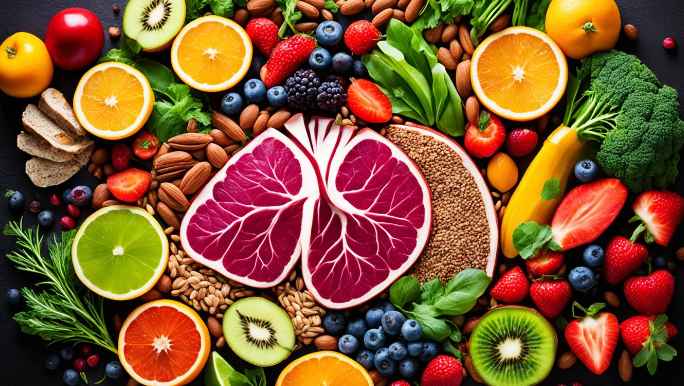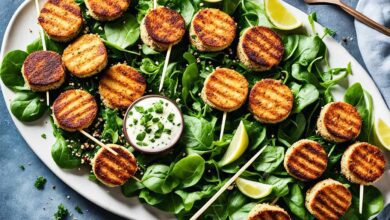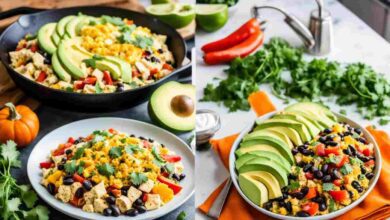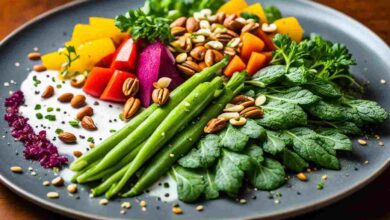Discovering Healthy Food Options: A Guide to Eating Well
"Top Nutritious Foods to Boost Your Well-Being"

In a world of fast food, processed snacks, and busy schedules, it can feel challenging to prioritize healthy eating. But choosing nutritious food doesn’t mean sacrificing taste or convenience. Many healthy food options are not only delicious but also provide the energy and nutrients needed for a productive, happy life. From whole grains to colorful vegetables, exploring healthy food options can transform the way you feel, think, and live. This guide will walk you through essential tips for discovering and incorporating healthier food choices into your daily routine.
1. Understanding the Basics of Healthy Eating
Healthy eating is about balance, variety, and consuming a range of nutrients. Ideally, a balanced diet provides an adequate mix of macronutrients (proteins, fats, and carbohydrates) and micronutrients (vitamins and minerals) to support bodily functions. Healthy foods are often those that are nutrient-dense, meaning they deliver a high amount of nutrients for fewer calories. This way, they offer satiety, energy, and essential nutrients without contributing to empty calories or added sugars.
For optimal health, consider choosing foods that are minimally processed, as these tend to retain more of their natural vitamins, minerals, and fiber. Whole foods—like fruits, vegetables, whole grains, lean proteins, and healthy fats—are excellent options that support physical and mental well-being.
2. Embracing Fruits and Vegetables
Fruits and vegetables should make up a large portion of any healthy diet. Packed with vitamins, minerals, antioxidants, and fiber, these colorful foods have been linked to reduced risks of chronic illnesses, such as heart disease, diabetes, and certain cancers. Here are some simple ways to incorporate more fruits and vegetables into your diet:
- Start with Breakfast: Add fresh fruit to your morning oatmeal, yogurt, or smoothie. Berries, bananas, and apples are great choices that add natural sweetness and fiber.
- Snack Smart: Keep raw veggies like carrots, cucumber, and bell peppers on hand for easy snacking. Pair them with hummus for added protein and flavor.
- Add to Main Dishes: Incorporate vegetables into soups, stews, stir-fries, and pasta dishes. Even a handful of leafy greens or diced vegetables can boost the nutrient content of your meal.
- Experiment with Variety: Try new fruits and vegetables each week. Seasonal produce often tastes best and provides a variety of nutrients throughout the year.
3. Whole Grains Over Refined Grains
Whole grains are a fantastic source of energy, fiber, and essential nutrients like B vitamins and iron. Unlike refined grains, which have been stripped of their fiber and nutrient-rich parts, whole grains retain their natural goodness. This not only makes them more filling but also helps stabilize blood sugar levels and support digestive health.
Here are some popular whole-grain choices:
- Quinoa: A versatile grain that’s also a complete protein, meaning it contains all nine essential amino acids. It can be used in salads, as a side dish, or even in breakfast bowls.
- Brown Rice: Packed with fiber and nutrients, brown rice is a great alternative to white rice. Use it in stir-fries, casseroles, or as a side for your main meal.
- Oats: A comforting breakfast option that’s high in fiber, oats help keep you full and support heart health. They’re perfect as oatmeal or added to smoothies for texture.
- Whole-wheat pasta and Bread: These options retain more fiber and nutrients than their refined counterparts, making them a better choice for sustained energy.
4. Lean Proteins for Muscle and Metabolism
Protein is essential for building and repairing tissues, supporting immune function, and maintaining lean muscle mass. However, not all protein sources are created equal. Lean proteins, which are low in unhealthy fats, offer a clean source of energy without excess calories.
Healthy Protein Choices:
- Poultry: Chicken and turkey are excellent lean protein sources. Opt for skinless cuts to reduce saturated fat.
- Fish: Fatty fish, like salmon and mackerel, provide omega-3 fatty acids, which support heart and brain health. White fish like cod and tilapia are also great options.
- Legumes: Lentils, chickpeas, and beans are plant-based proteins that are high in fiber, iron, and antioxidants. They’re budget-friendly and can be used in soups, salads, and stews.
- Eggs: A versatile source of protein that’s also rich in essential vitamins. Eggs make for a quick and easy breakfast, lunch, or snack.
- Tofu and Tempeh: Plant-based proteins made from soybeans, these are especially popular in vegetarian and vegan diets and are excellent in stir-fries, salads, and sandwiches.
5. Healthy Fats for Energy and Vitality
Despite past beliefs that fats should be minimized, we now understand that healthy fats are essential for brain health, hormone production, and nutrient absorption. The key is choosing the right fats—unsaturated fats from plant-based sources are ideal, while trans fats and excessive saturated fats should be limited.
Sources of Healthy Fats:
- Avocados: Rich in monounsaturated fats and fiber, avocados are great for heart health and can be used in salads, on toast, or as a topping for various dishes.
- Nuts and Seeds: Almonds, walnuts, chia seeds, and flaxseeds offer healthy fats, fiber, and protein. A small handful makes for a satisfying snack or can be added to salads, yogurt, or oatmeal.
- Olive Oil: A staple of the Mediterranean diet, olive oil is high in heart-healthy monounsaturated fats. Use it in dressings, marinades, or for sautéing vegetables.
- Fatty Fish: As mentioned, fish like salmon, sardines, and trout are excellent sources of omega-3s, which are known for their anti-inflammatory benefits.
6. Hydration: The Forgotten Nutrient
Staying hydrated is essential for overall health, as water supports digestion, circulation, temperature regulation, and nutrient transport. Many people overlook hydration, but it plays a crucial role in maintaining energy levels and mental clarity. Aim to drink at least eight glasses of water daily, and remember that hydrating foods like cucumbers, oranges, and watermelon can contribute to your fluid intake as well.
For variety, try herbal teas, flavored water with fruit infusions, or a splash of lemon or lime for a refreshing twist.
7. Minimizing Processed Foods and Added Sugars
Processed foods often contain added sugars, unhealthy fats, and artificial additives, which can lead to weight gain, inflammation, and other health issues. Choosing whole, unprocessed foods as much as possible is key to a healthy diet. Here are a few tips to reduce processed foods:
- Cook at Home: Preparing your meals gives you control over the ingredients. Experiment with simple recipes and whole foods.
- Read Labels: Be mindful of hidden sugars and preservatives by reading food labels. Look for foods with fewer ingredients and avoid those with high-fructose corn syrup, hydrogenated oils, and artificial flavors.
- Limit Sugary Drinks: Sugary drinks, such as soda and certain fruit juices, can be a major source of empty calories. Opt for water, herbal teas, or infused waters instead.
8. Simple Healthy Meal Ideas to Try
Switching to healthier options doesn’t mean sacrificing flavor or satisfaction. Here are a few meal ideas to inspire you:
- Breakfast: Try overnight oats with fresh berries, chia seeds, and a drizzle of honey for a nutrient-packed start to the day.
- Lunch: A quinoa salad with leafy greens, roasted vegetables, avocado, and chickpeas, drizzled with olive oil and lemon juice.
- Snack: Greek yogurt topped with nuts, seeds, and a handful of berries or a sliced apple with almond butter.
- Dinner: Grilled salmon with a side of steamed broccoli and a small portion of brown rice or sweet potatoes for a filling and balanced meal.
- Dessert: A bowl of mixed berries or a small piece of dark chocolate with nuts can satisfy a sweet tooth while providing antioxidants.
Conclusion
Eating healthily is an investment in your well-being and doesn’t have to be complicated. By incorporating more fruits, vegetables, whole grains, lean proteins, and healthy fats, you can enjoy flavorful meals that fuel your body and mind. Reducing processed foods and added sugars, staying hydrated, and focusing on whole, nutrient-dense foods can help you build a balanced diet that supports a long and healthy life. Experiment with new ingredients, get creative in the kitchen and remember that small changes can make a big difference in how you feel each day. By discovering and incorporating healthy food options, you can create a nourishing lifestyle that’s both enjoyable and sustainable.




